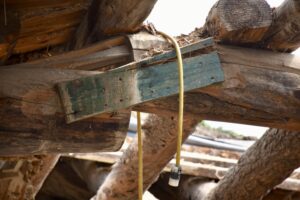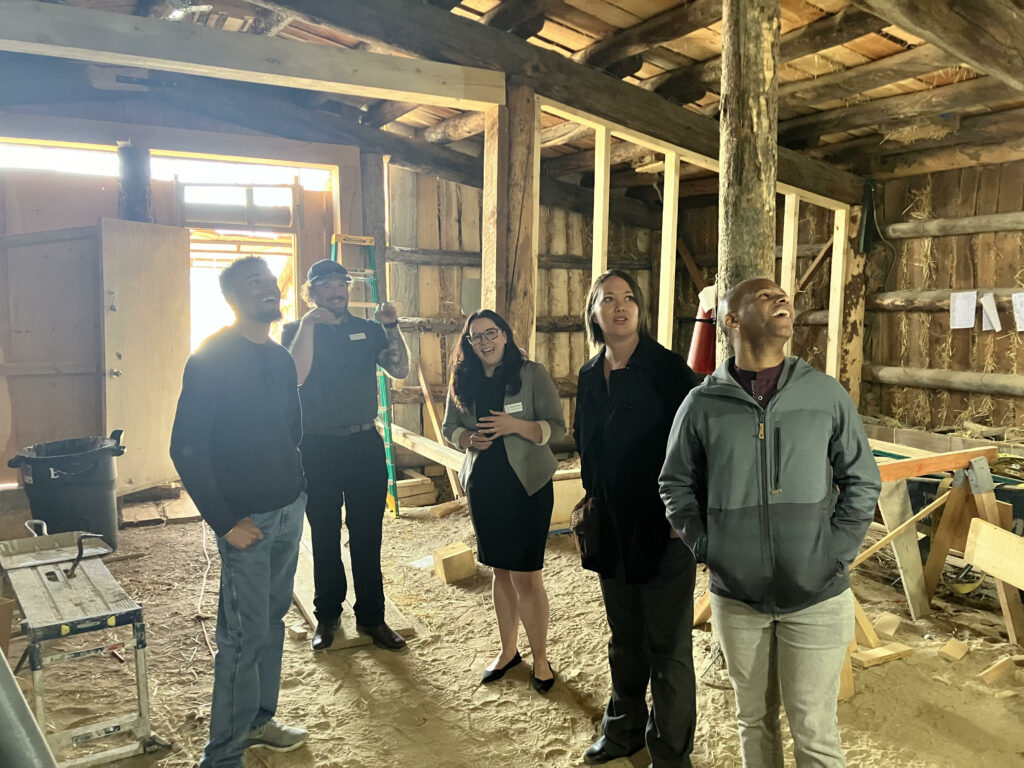The National Park Service is awarding an $851,826 grant to the Heart Mountain Wyoming Foundation help restore the historic root cellar built by incarcerated Japanese Americans during World War II to store produce grown at the camp.
Hidden beneath the wooden air vents that can be seen standing akilter near farmland where the Heart Mountain camp once stood, the cellar is a vast underground structure approximately 35 feet wide and 312 feet long.

The grant is part of the $3.2 million in funding announced Thursday by the service’s Japanese American Confinement Sites (JACS) program, which distributes grants to organizations that tell the history of the 125,000 Japanese Americans forced from the West Coast and into a series of prison camps around the country.
It is Heart Mountain’s second JACS grant for the root cellar project, which began in 2013 when a local family donated the structure to the Heart Mountain Wyoming Foundation. In 2019, the JACS program awarded $424,760 toward the project, and additional funds came from the Aratani Foundation, the Park County Travel Council, and individual donors. The latest grant, which requires a 50 percent match from Heart Mountain, will enable the cellar to be safely opened to the public.
The long-term goal is to install a full exhibit inside of the cellar that details the history of the Heart Mountain farm program that helped feed the 14,000 Japanese Americans who lived there between 1942 and 1945. The cellar is part of a growing campus at Heart Mountain that includes a world-class interpretive center, original barracks, a military honor roll, an interpretive trail, and the Foundation’s new Mineta-Simpson Institute.
The Heart Mountain Wyoming Foundation, a Smithsonian Affiliate, preserves the site where some 14,000 Japanese Americans were unjustly incarcerated in Wyoming from 1942 through 1945. Their stories are told within the foundation’s museum, Heart Mountain Interpretive Center, located between Cody and Powell.










